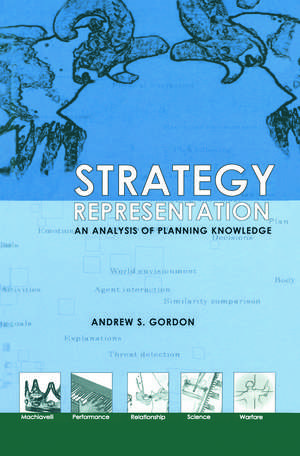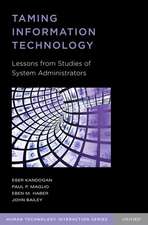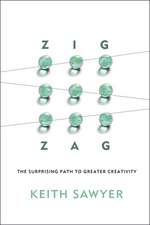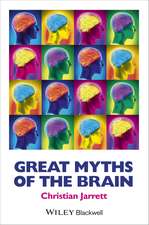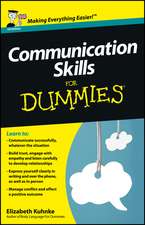Strategy Representation: An Analysis of Planning Knowledge
Autor Andrew S. Gordonen Limba Engleză Paperback – 9 iul 2013
Noting that strategies often serve as the basis for analogies that people draw across planning situations, this work attempts to explain these analogies by defining the fundamental concepts that are common across all instances of each strategy. By aggregating evidence from each of the strategy definitions provided, the representational requirements of strategic planning are identified. The important finding is that the concepts that underlie strategic reasoning are of incredibly broad scope. Nearly 1,000 fundamental concepts are identified, covering every existing area of knowledge representation research and many areas that have not yet been adequately formalized, particularly those related to common sense understanding of mental states and processes. An organization of these concepts into 48 fundamental areas of knowledge and representation is provided, offering an invaluable roadmap for progress within the field.
Preț: 325.01 lei
Preț vechi: 424.94 lei
-24% Nou
Puncte Express: 488
Preț estimativ în valută:
62.19€ • 65.11$ • 51.46£
62.19€ • 65.11$ • 51.46£
Carte tipărită la comandă
Livrare economică 07-21 aprilie
Preluare comenzi: 021 569.72.76
Specificații
ISBN-13: 9780415652025
ISBN-10: 0415652022
Pagini: 360
Dimensiuni: 152 x 229 x 23 mm
Greutate: 0.5 kg
Ediția:1
Editura: Taylor & Francis
Colecția Psychology Press
Locul publicării:Oxford, United Kingdom
ISBN-10: 0415652022
Pagini: 360
Dimensiuni: 152 x 229 x 23 mm
Greutate: 0.5 kg
Ediția:1
Editura: Taylor & Francis
Colecția Psychology Press
Locul publicării:Oxford, United Kingdom
Public țintă
ProfessionalCuprins
Contents: Strategies and Cognition. Strategic Analogies. Representational Requirements. Strategy Representations. Conceptual Index to Strategies. Representational Areas.
Descriere
Strategy Representation: An Analysis of Planning Knowledge describes an innovative methodology for identifying the breadth of concepts used in strategic reasoning, where the analysis of 372 strategies across 10 planning domains is used to identify
